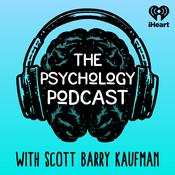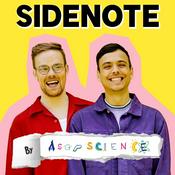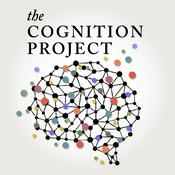2489 episodios
- https://arxiv.org/abs//2508.21038
YouTube: https://www.youtube.com/@ArxivPapers
TikTok: https://www.tiktok.com/@arxiv_papers
Apple Podcasts: https://podcasts.apple.com/us/podcast/arxiv-papers/id1692476016
Spotify: https://podcasters.spotify.com/pod/show/arxiv-papers - https://arxiv.org/abs//2508.21038
YouTube: https://www.youtube.com/@ArxivPapers
TikTok: https://www.tiktok.com/@arxiv_papers
Apple Podcasts: https://podcasts.apple.com/us/podcast/arxiv-papers/id1692476016
Spotify: https://podcasters.spotify.com/pod/show/arxiv-papers [QA] Beyond GPT-5: Making LLMs Cheaper and Better via Performance–Efficiency Optimized Routing
22/8/2025 | 7 minAvengers-Pro is a test-time routing framework that optimizes performance and efficiency in LLMs, achieving state-of-the-art results by dynamically assigning queries to suitable models based on performance-efficiency scores.
https://arxiv.org/abs//2508.12631
YouTube: https://www.youtube.com/@ArxivPapers
TikTok: https://www.tiktok.com/@arxiv_papers
Apple Podcasts: https://podcasts.apple.com/us/podcast/arxiv-papers/id1692476016
Spotify: https://podcasters.spotify.com/pod/show/arxiv-papersBeyond GPT-5: Making LLMs Cheaper and Better via Performance–Efficiency Optimized Routing
22/8/2025 | 9 minAvengers-Pro is a test-time routing framework that optimizes performance and efficiency in LLMs, achieving state-of-the-art results by dynamically assigning queries to suitable models based on performance-efficiency scores.
https://arxiv.org/abs//2508.12631
YouTube: https://www.youtube.com/@ArxivPapers
TikTok: https://www.tiktok.com/@arxiv_papers
Apple Podcasts: https://podcasts.apple.com/us/podcast/arxiv-papers/id1692476016
Spotify: https://podcasters.spotify.com/pod/show/arxiv-papers- https://arxiv.org/abs//2508.15734
YouTube: https://www.youtube.com/@ArxivPapers
TikTok: https://www.tiktok.com/@arxiv_papers
Apple Podcasts: https://podcasts.apple.com/us/podcast/arxiv-papers/id1692476016
Spotify: https://podcasters.spotify.com/pod/show/arxiv-papers
Más podcasts de Ciencias
Podcasts a la moda de Ciencias
Acerca de Arxiv Papers
Running out of time to catch up with new arXiv papers? We take the most impactful papers and present them as convenient podcasts. If you're a visual learner, we offer these papers in an engaging video format. Our service fills the gap between overly brief paper summaries and time-consuming full paper reads. You gain academic insights in a time-efficient, digestible format. Code behind this work: https://github.com/imelnyk/ArxivPapers
Sitio web del podcastEscucha Arxiv Papers, Horizonte – Iker Jiménez y muchos más podcasts de todo el mundo con la aplicación de radio.es

Descarga la app gratuita: radio.es
- Añadir radios y podcasts a favoritos
- Transmisión por Wi-Fi y Bluetooth
- Carplay & Android Auto compatible
- Muchas otras funciones de la app
Descarga la app gratuita: radio.es
- Añadir radios y podcasts a favoritos
- Transmisión por Wi-Fi y Bluetooth
- Carplay & Android Auto compatible
- Muchas otras funciones de la app


Arxiv Papers
Escanea el código,
Descarga la app,
Escucha.
Descarga la app,
Escucha.








































